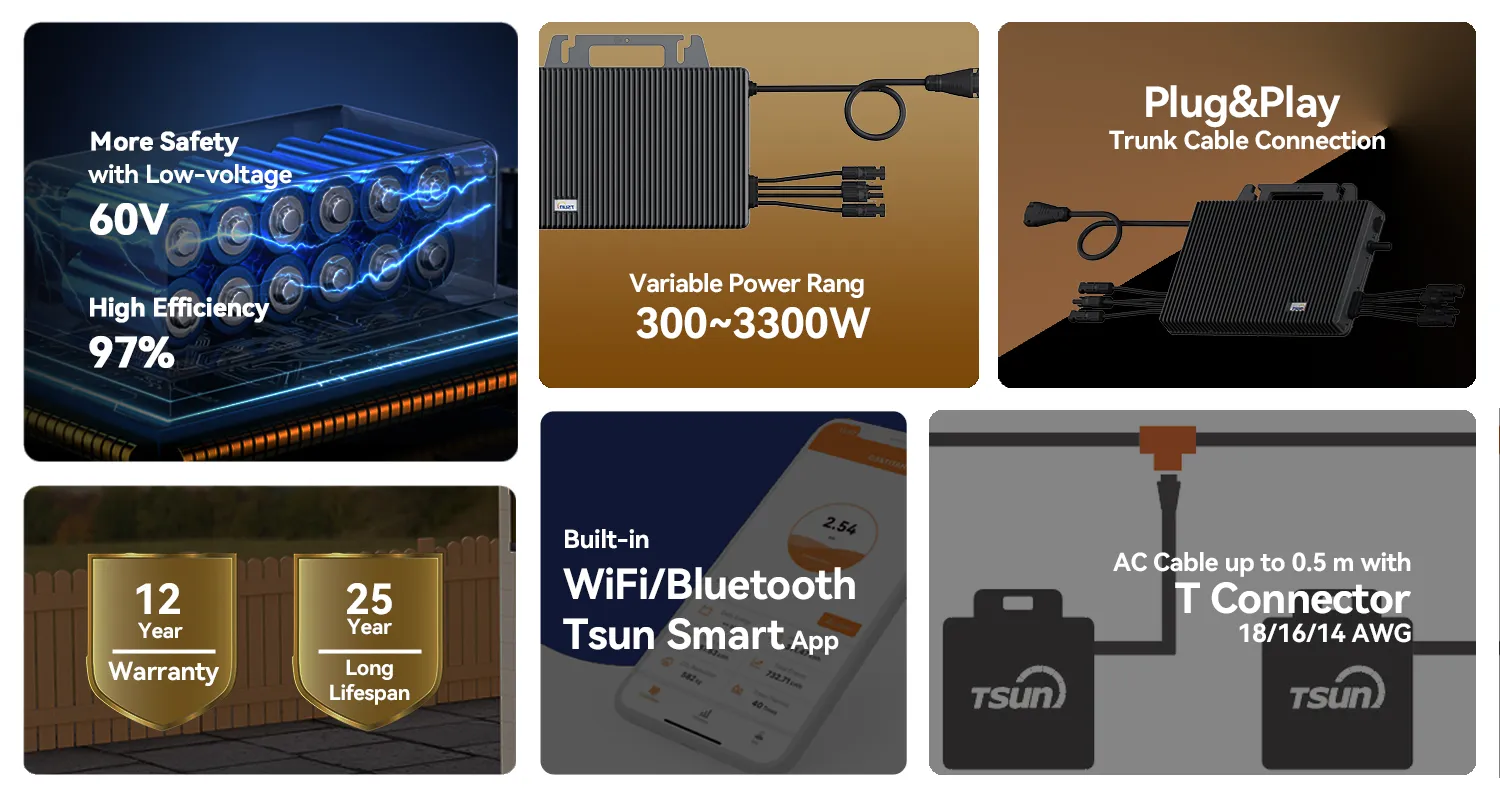Easy Solar Kit (with microinverter)
 LEARN DETAILS
LEARN DETAILS
 News
News
Table of contents
Understanding Microinverter Solar Panel Systems
In the quest for sustainable energy solutions, solar power stands out as an increasingly popular choice. Among the various technologies available, microinverter solar panel systems have gained significant traction over traditional inverter systems. This article explores the advantages, functioning, and considerations surrounding microinverter solar panel systems.
What is a Microinverter?
A microinverter is a small device that converts direct current (DC) generated by a solar panel into alternating current (AC) that can be used in homes or fed back into the electricity grid. Unlike standard inverter systems that connect to multiple solar panels, microinverters are attached to each individual panel, allowing for optimized performance and enhanced energy output.
Advantages of Microinverter Systems
1. Increased Energy Harvesting One of the primary benefits of microinverters is their ability to maximize energy production. Traditional inverter systems can suffer from shading or performance issues due to soiling or malfunction of one panel, impacting the entire array’s efficiency. Microinverters, on the other hand, allow each panel to operate independently. This independence means that even if one panel is underperforming, the others can still function optimally, leading to higher overall energy production.
2. Enhanced Monitoring Microinverter systems often come with advanced monitoring capabilities, allowing homeowners to track the production of each individual solar panel. This feature not only helps in pinpointing issues quickly but also provides valuable data enabling users to understand their energy consumption patterns and make informed decisions regarding energy use.
3. Improved Safety Safety is another significant advantage of microinverters. In traditional systems, high-voltage DC electricity runs through wiring between the panels and the main inverter, which can pose fire hazards if there are faults. With microinverters, the conversion to AC happens right at the panel, reducing the risk of high voltage in the wiring system. This adds a layer of safety, particularly in residential setups.

4. Scalability and Flexibility Microinverter systems offer greater scalability compared to traditional systems. Homeowners can start with a small system and gradually add more panels as needed without the complexities of reconfiguring a large inverter. This flexibility can be especially beneficial for individuals unsure about their energy needs or those planning to expand their installations in the future.
Considerations When Choosing Microinverters
While microinverter systems present many advantages, there are factors to consider before making a decision.
1. Cost Microinverters are generally more expensive upfront compared to traditional string inverters. Homeowners must weigh the potential long-term benefits against the initial investment. However, the higher energy yield and greater monitoring capabilities can lead to savings on energy bills over time.
2. Maintenance and Lifespan Microinverters typically have a longer lifespan than traditional inverters, which can require replacement after a certain number of years (often 5-10 years). Most microinverters come with warranties of 20-25 years, which aligns more closely with the lifespan of solar panels themselves.
3. Complexity of Installation Installing a microinverter system can be more complex due to the individual connections required for each panel. However, professional installation can mitigate these issues.
Conclusion
Microinverter solar panel systems are an innovative solution in the solar energy landscape. With their ability to maximize efficiency, enable detailed monitoring, enhance safety, and provide scalability, they are a compelling option for homeowners looking to invest in solar energy. While the initial costs may be higher than traditional systems, the long-term benefits can be significant, making microinverters a worthy consideration for anyone interested in harnessing solar power. As solar technology continues to evolve, microinverter systems may play a crucial role in driving the future of clean energy.

